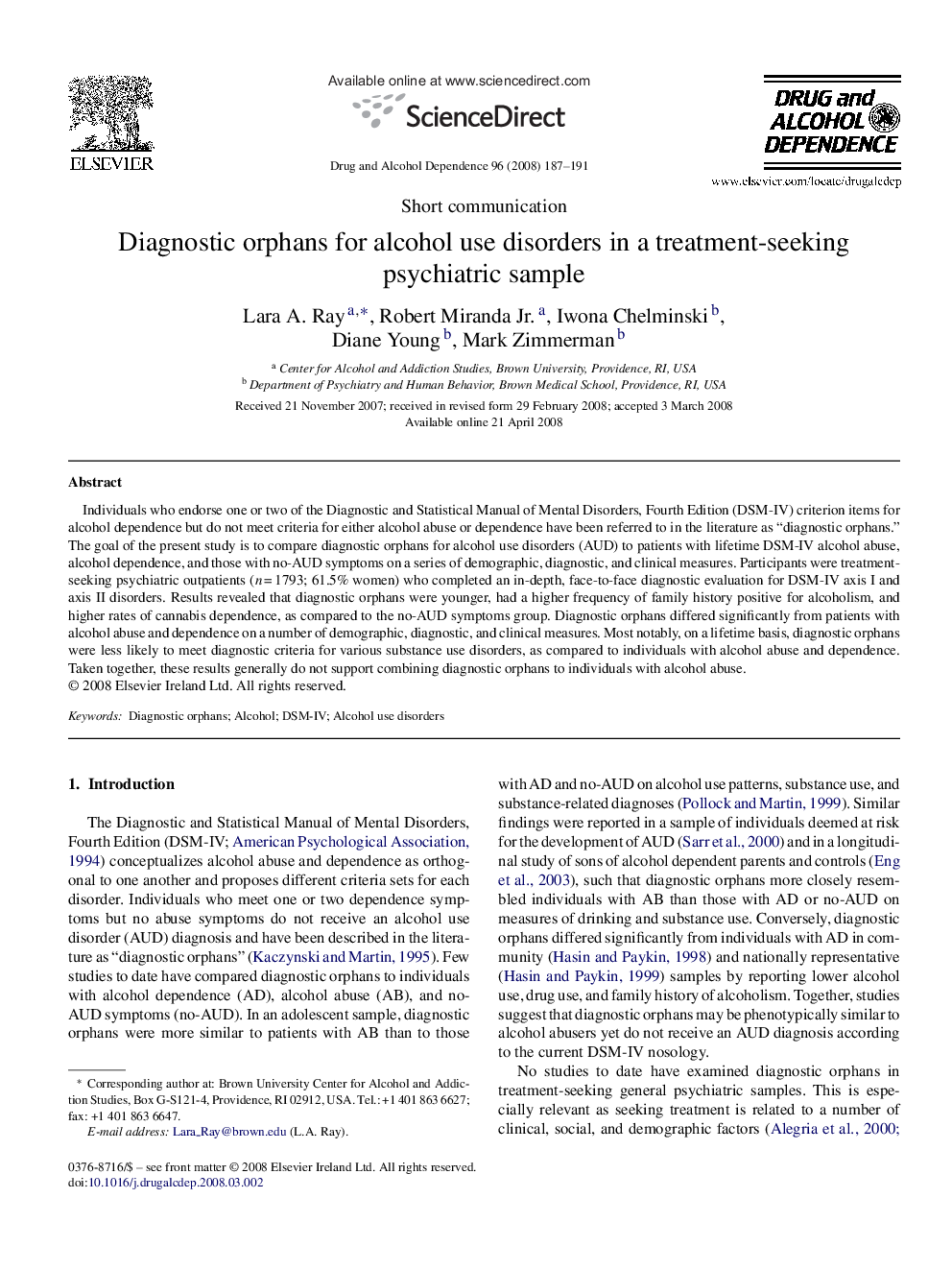| Article ID | Journal | Published Year | Pages | File Type |
|---|---|---|---|---|
| 1071244 | Drug and Alcohol Dependence | 2008 | 5 Pages |
Individuals who endorse one or two of the Diagnostic and Statistical Manual of Mental Disorders, Fourth Edition (DSM-IV) criterion items for alcohol dependence but do not meet criteria for either alcohol abuse or dependence have been referred to in the literature as “diagnostic orphans.” The goal of the present study is to compare diagnostic orphans for alcohol use disorders (AUD) to patients with lifetime DSM-IV alcohol abuse, alcohol dependence, and those with no-AUD symptoms on a series of demographic, diagnostic, and clinical measures. Participants were treatment-seeking psychiatric outpatients (n = 1793; 61.5% women) who completed an in-depth, face-to-face diagnostic evaluation for DSM-IV axis I and axis II disorders. Results revealed that diagnostic orphans were younger, had a higher frequency of family history positive for alcoholism, and higher rates of cannabis dependence, as compared to the no-AUD symptoms group. Diagnostic orphans differed significantly from patients with alcohol abuse and dependence on a number of demographic, diagnostic, and clinical measures. Most notably, on a lifetime basis, diagnostic orphans were less likely to meet diagnostic criteria for various substance use disorders, as compared to individuals with alcohol abuse and dependence. Taken together, these results generally do not support combining diagnostic orphans to individuals with alcohol abuse.
